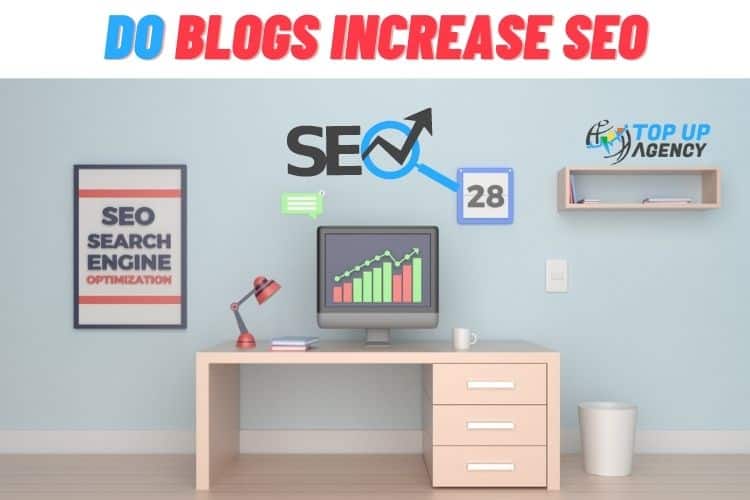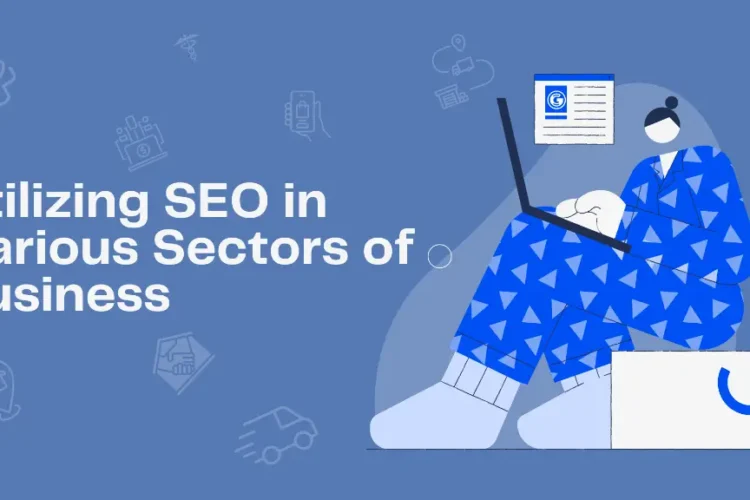
Does blogging help with SEO?
It’s no secret that SEO is an important part of any successful website or blog. But how does blogging specifically play a role in SEO? In this article, we’ll explore the various ways that blogging can help improve your website’s search engine rankings and ultimately increase your visibility online.
Find on-page Website optimization tips to improve your blog content to make it naturally rank and effectively accessible.
What is blog SEO?
Blog SEO design is the act of making and refreshing a blog to improve search engine rankings.
Does blogging help with SEO?
yes SEO helps in blogging if you post relevant to your domain or niche or the most important answers to those questions that your visitors gain some type of solid help n this is important as well make the website appealing to visitors
When you optimize your web pages including your blog posts, you’re making your website more visible to people using search engines (like Google) to find your product or service.
Why does blogging improve search engine optimization?
Google and other search engines use ranking factors to figure out what results comes for search queries. It also chooses how to rank those outcomes. Blogging can help you improve your site for important Google ranking features like:
- Organic Click-Through Rate
- Index Coverage
- Backlinks
- Internal Links
What is a blog SEO strategy?
Blog SEO strategy is a complete plan to improve organic search results. This plan valor includes competitive research, keyword lists, or an optimization application.
Search engines make successive updates. Business goals can change quickly too. But it can take an average of 3 to 6 months for a post to rank on Google. Without a proper plan, you might find yourself investing in your blog but not seeing a boost in SEO.
A strategy can help you check whether your ideas and efforts are helpful. This post can help you develop your SEO if you’re not sure where to start.
- Blog SEO Best Practices
- There are a few helpful points that ill share with
- Identify the target audience for your blog.
- Keyword research.
- Add media
- Catchy title
- An enticing CTA.
- Focus on the reader’s experience.
Factors That Affect Blog SEO?
The following are peak-level factors that can directly and indirectly, affect blog SEO.
- Dwell Time
- Page Speed
- Mobile Responsiveness
- Index Date
- Recent Data
Blog SEO? Tips
Use 1–2 long-tail keywords.
Long-tail keywords get less search traffic, but will usually have a higher conversion value, as they are more particular. They let you progressively get more traffic to your site and be created by new and interested audiences.
Create SEO personas.
- Choose your audience
- What are the problems with your product
- Customer characteristics
- Triggers and objections
- Real customers
- Bring your personas to life
- Share your personas with your team members
Consider mobile devices.
We learned earlier that more people use search engines (goggle, Bing, etc.) from their mobile phones than from a computer, 64% of SEO persons say that mobile optimization (mobile friendly) is a compelling investment.
And for all those valuable searches on mobile devices, Google displays the mobile-friendly results first. This is an alternative example of Google heavily choosing mobile-friendly websites.
Make the best of the SEO tools and structures in your CMS.
The perfect CMS can help you improve blog SEO. Whether you ‘reposting a new blog post or updating website pages, the more built-in features you have the easier it will be to optimize for SEO.
Focus on readability.
One of the most common blog mistakes is assuming the people who land on your blog will read it thoroughly. When they catch your post, their goal is to find what they’re viewing for.
Use simple words as you can use with short sentences also limit jargon, adjective, and adverbs.
Limit topic tags.
Topic tags can help establish your blog content, but if you overdo them, they can actually be damaging. If you have too many related tags, you may get disciplined by search engines for having matching content. So don’t use too many tags or mostly the same type of tags.
Create user-friendly URLs.
Before you publish your blog post, take look at its URL structure. Is it long, filled with stop words, or discrete from the post’s topic? If so, you might want to change it before it goes live.
Like I want to publish a post on white gaming chairs so it’s very meaningful to add this like
https://www.yourrwebsitename.com/white-gaming-chair
Organize by topic cluster.
In easy words, we can say that topic clusters are centered on a single topic and offer multiple internal linking opportunities to keep readers on your site.
Optimize for SERP features.
There are further organic page results on Google. Each search engine results page (SERP) includes a range of different features to help users find what they’re looking for.
Publish evergreen content.
When you think about writing something for your blog post then make sure to write something that takes you a long time of period it helps you to rank over time or generate traffic resources.
Update existing content.
To progress your SEO, you may undertake you need to generate new blog content. Precisely, repurposing and informing your current content, as well as removing your outdated content.
Create Blog Content for Your Readers
We don’t suppose you to combine each of these SEO best does into your content strategy right away. But, as your website grows, so must your goals on search engines. Once you make out the goals and determined your ideal readers, you’ll be on track to deliver relevant content that will climb the ranks of the SERP.
Benefits of Creating Quality Content
One of the most important benefits of creating quality content is that it can help improve your website’s SEO. This is because search engines like Google place a high value on websites that regularly produce high-quality, original content. In addition, quality content can also help attract more visitors to your website, which can lead to more sales and conversions. Finally, quality content can also build trust and credibility with your audience, which can further improve your website’s overall performance.
Tips for Writing SEO-Friendly Blog Posts
SEO-friendly blog posts are those that are optimized to rank well in search engine results pages (SERPs). To write an SEO-friendly blog post, start by doing keyword research to find out what terms people are searching for related to your topic. Then, use those keywords throughout your post in the title, headings, and body text.
Be sure to also include other relevant keywords and phrases that will help your post appear in more search results. In addition, make sure your blog post is well-written and free of errors, as this can also impact your ranking. Finally, promote your blog post on social media and other websites to get even more eyes on it. By following these tips, you can write an SEO-friendly blog post that has a better chance of ranking high in SERPs.
Strategies to Increase SEO Through Blogging
Yes, blogs can increase SEO. Here are a few strategies to increase SEO through blogging:
- Use keyword-rich titles and tags. When creating your blog post, be sure to include relevant keywords in the title and tags. This will help your post show up in search engine results when people are searching for those keywords.
- Promote your blog posts. Be sure when you published a new blog post to promote it on social media and other online platforms. This will help drive traffic to your post and may also result in links back to your site, which can further improve your SEO.
- Create quality content. Quality content is essential for a successful blog and good SEO. Make sure your posts are informative, well-written, and easy to read. This will keep people coming back for more, and it may also encourage them to link to your content or share it with others.
By following these tips, you can use blogging as an effective tool to improve your site’s SEO and visibility on the web.
Measuring the Effectiveness of Your SEO Strategy
There are a number of ways to measure the effectiveness of your SEO strategy. One way is to track the number of visitors to your website from organic search engine results. This can be done by using google Analytics and other web traffic tracking tools.
Another way to measure the effectiveness of your SEO strategy is to track the keyword rankings for your website in search engines. This can be done using tools like Google Search Console or Moz’s Keyword Explorer.
Finally, you can also measure the leads and sales generated from your website as a result of your SEO efforts. This can be done by tracking contact forms filled out or products purchased on your website.



